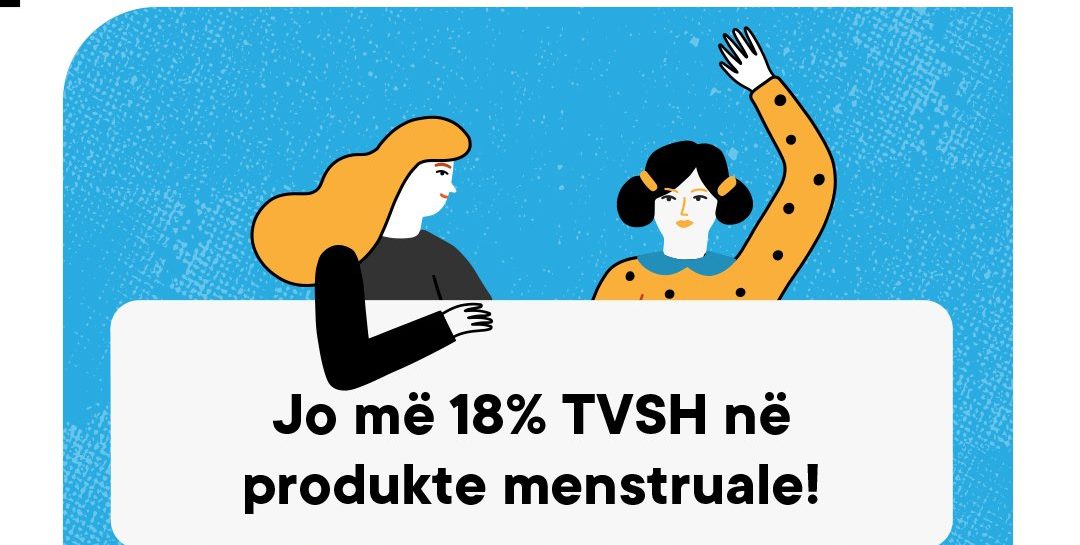On May 24, the Kosovo Women’s Network (KWN) launched a campaign demanding the abolition of taxes on menstrual products. Currently menstrual products in Kosovo are taxed at 18% of their value, just as luxury products are taxed. Recall that there is another value added tax of 8% for essential products, such as pharmaceuticals. However, menstrual products are not taxed with this tax either, which would nevertheless reduce their price. They continue to be taxed as if they were luxury products, not essential, as they are for women and girls and their well-being and their right to affordable health care.
Through this campaign, KWN aims to inform citizens about the importance of implementing gender policies in imposing taxes on menstrual products, as well as the special importance it holds in the case of Kosovo – knowing that only 15.9% of women in Kosovo are employed.
To advocate for this, on May 28, World Menstrual Hygiene Da,y KWN sent a policy document entitled “Gender Responsive Taxation: Abolition of Taxes for Menstrual Hygiene Products” to the Ministry of Finance, Labor, and Transfers. This document, which was originally launched by KWN member organization EcoKos Women (EKW), clearly sets out the reasons why the Government of Kosovo should reduce or eliminate taxes on menstrual products altogether, thus increasing women’s well-being. and implement Gender Responsive Budgeting, as committed through the Law on Gender Equality. The document also contains recommendations on how to do so.
Therefore, KWN encourages the Government of Kosovo to amend Law No. 05 / L-037 on Value Added Tax, and with it to change the administrative instructions for its implementation, so that menstrual products are exempt from customs duties. and from taxation. This will benefit low-income families as well as contribute to achieving equality in state revenue collection by removing this discriminatory tax on women. Furthermore, it would contribute to improving women’s access to health care, personal hygiene management, education and employment. If the complete abolition of the tax is not possible, then anyway this tax should be reduced to 8%, as in this way their price would be reduced without being so noticed in the collection of state revenues.
This campaign is supported by the Austrian Development Agency (ADA) and the Swedish International Cooperation and Development Agency (Sida).








